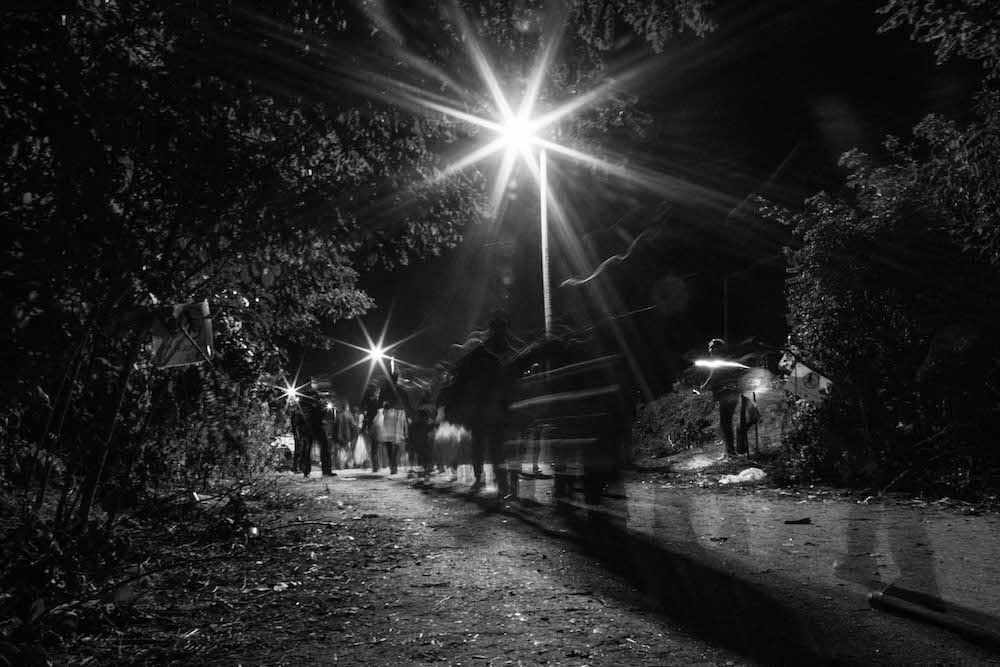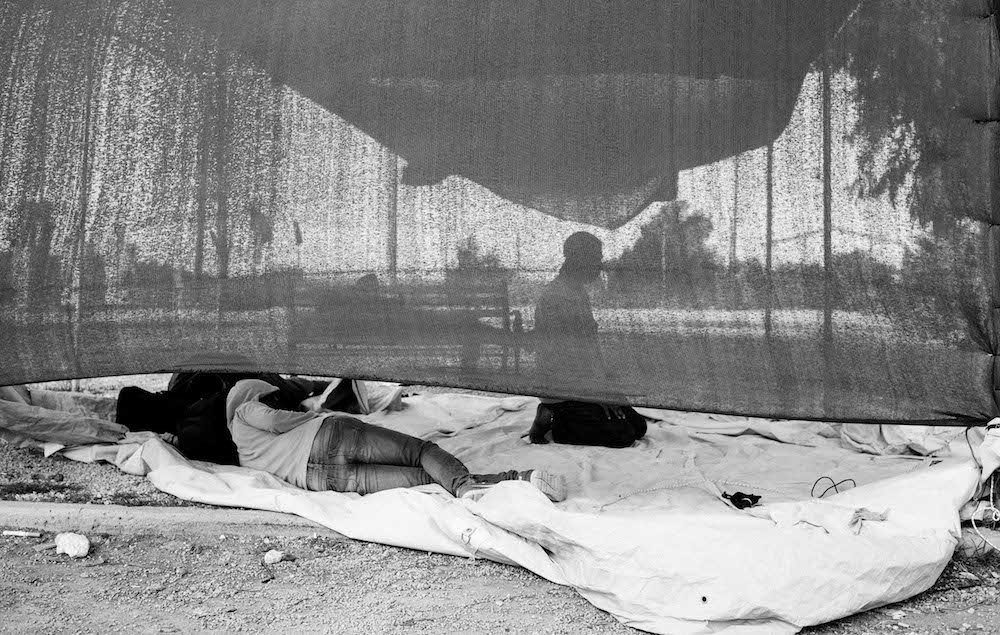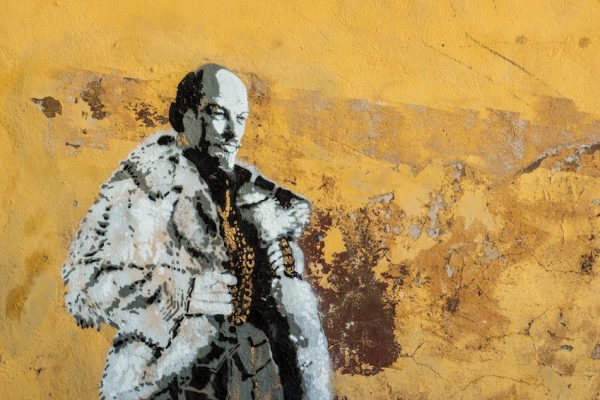Since 2015, we have been witnessing one of the worst global humanitarian crises of our time – the Syrian Civil war.
Millions of innocent families and children have been exiled from their war-torn countries, risking their lives daily to escape the carnage. Millions are embarking the most treacherous routes across the Mediterranean Sea, with the sole hope to seek asylum and brighter futures in the West.
As headlines about this crisis continue to dominate our screens, we at Bizarre Culture wanted to gain a true insight into this ubiquitous crisis. This month we interviewed the founders of ‘Refugee Trails: A European Odyssey’ who recently spent two weeks following the major route taken by refugees entering Europe. Their journey crossed six countries and covered over 2,500km. Tired of the media reducing refugees to mere statistics, these guys felt that the refugees’ voices have been left out of the stories and need to be heard. This, combined with seeking to understand people’s motivations and circumstances of fleeing, inspired them to understand what it truly means to be a refugee in Europe today.
Please can you all introduce yourselves to us?
Melanie Cura Daball – I recently graduated from the London School of Economics and Politics, academically specialising in gender-based violence issues. I have since followed stories across Europe and South Asia, and I currently work as a freelance journalist, based in London.
Adib Chowdhury – I am interested in photojournalism, and I have published for various blogs and magazines including Cosmopolitan. I recently graduated from the London School of Economics, focusing particularly on the issue of forced migration.
Follow me on Instagram or for my other work: www.adibphotography.com
Souvid Datta – I am a freelance multimedia journalist and graduate from University College London, in international relations and conflict studies. For three years I have followed commissioned and personal projects across the Europe, N.Africa, Central America, Afghanistan, S.Asia & China working for clients including The Guardian, Time Magazine, Vice, and Wired.
Follow me on Instagram and Twitter
What ideal response would you like to receive from people you are reaching out to, and those who come across your work?
Melanie: One of our main intentions was to create a better understanding of what it means to be a refugee in Europe for ourselves but, of course, also for others. I am from Germany, and although there are millions of people who supported Merkel’s refugee policy, there are also many who didn’t, mainly because they are scared or don’t really know why we are experiencing this refugee crisis at the moment. Parts of the German population, or the European as a whole, tend to reduce the refugee crisis to “swarms of foreigners” entering their country instead of seeing the human beings, the individuals fleeing humanitarian disasters. If only a few people read our story and start seeing the 11-year-old-boy travelling by himself in the hope to be able to sleep without bombs hailing down from the sky instead of a stranger they have no responsibility for, then, I think, we did a good job.

Source: http://refugeetrails.com/
One of the key criticisms faced by this refugee crisis is that most people leaving their families behind are young men. Many fear these young men will end up fighting for ISIS or join rebel militia groups. Are these fears/concerns justified?
Melanie: No, definitely not. It is true that the numbers point towards young men forming the largest percentage of refugees from the Middle East and Africa, but why should these men who are fleeing from chaos, war and destruction end up fighting for ISIS? We talked to many refugees and asked why they decided to flee and leave everything behind. The answer that we always got was: “to find peace”. The refugees we met were escaping from unspeakable terror— nothing could be further from their minds than fighting for ISIS or joining a rebel militia group.
One of the main reasons why we see mainly young men arriving at European shores and borders is that the journey is not only incredibly expensive (from Syria to Greece alone it is 3000 Euros on average) but also very dangerous — at least 3000 migrants and refugees are believed to have died crossing the Mediterranean Sea in 2015. We met young family fathers, brothers, and sons who decided to embark on this dangerous journey by themselves hoping to find a safer way (and help from European governments) for their loved ones to join them in Europe. Nevertheless, despite the dangers crossing the Aegean, at least 30-40% of the refugees are in fact women, children and elderly.
You may have experienced both sides of humanity on your journey, please could you share some more stories and experiences with us?
Souvid: We only had very positive experiences on our journey. In midst of all the hardship of the people, we had the privilege to experience incredible kindness and heart-warming hospitality. Everyone was very open to talking to us, invited us into their tents and offered us the last bottles of water or snacks they had on them. We saw some of the refugees we had spent some time with again over the course of their journey, shared our experiences and exchanged hearty hugs. Other journalists might have had different experiences, but we were really lucky.

Source: http://refugeetrails.com/
What were your main concerns before embarking on this journey? Did you have any fears for when meeting the refugees and experiencing their struggles?
Adib: I’ve been asked by a few people now as to whether I would be scared/ apprehensive about meeting the refugees but that never even crossed my mind. These are ordinary people fleeing the worst thing we could do to one another and seeking shelter from it. Any fear-mongering of refugees, in my opinion, has tended to be for political expediency whether that be to justify reducing the amount entering Europe or to serve the xenophobic attitudes of its growing far right. I feel privileged to have spoken and shared stories of such brave people risking everything to give their families a better life.
What is your opinion with regards to people referring to refugees as economic migrants?
Adib: From what we saw and the statistics are telling us; there are far more refugees (that is people being forced to flee violence, persecution, or natural disasters) than economic migrants. Certainly, there are economic migrants dotted amongst the influx of people, but the number of genuine refugee cases exceeds that to such an extent that labelling the entire group ‘economic migrants’ portrays a false reality and distances the public from viewing them as people in need of care and attention.

Source: http://refugeetrails.com/
Do you think Europe can cope with the refugee inflows? If yes, how?
Adib: I do. I think Europe has been caught off-guard by the scale of various crises around the world. A more foresighted understanding of the international situation and of the fact that refugee camps in surrounding conflicted-affected countries were bursting at the seams would have hinted that people would head out further for shelter and new opportunities. A cohesive policy that records and distributes refugees to various countries based on a percentage relative to the populace of countries would mean there wouldn’t be just a handful of countries bearing an unfairly disproportionate number of refugees. Funding that supports states taking in refugees would also provide an incentive, but the reality is that the EU is weak and undergoing an identity crisis through accepting refugees due to the negative discourse surrounding Muslims in recent years. As a result, the acceptance of refugees has been hand-in-hand with the discussion of integration and identity, which has slowed down the process and shifted focus from the basic humanitarian needs of others.
Lastly, are you planning any future developments to keep spreading more light on this issue and raise further awareness of your message?
Adib: The issue of forced migration is something that I’ve focused on academically having written both my undergraduate and postgraduate dissertations on the topic. This was my first attempt at linking what I’d learned academically alongside my love of photography and its an issue I find fascinating and hope to pursue further. Perhaps with some funding from grants and planning more personal projects in the future I can explore the topic more broadly by looking at the wider issues regarding displacement, such as the psychological impact of integrating elsewhere with a longing to return. Currently, I’m planning a project that explores the emotional trauma of conflict.
Read more of their story – www.refugeetrails.com

Source: http://refugeetrails.com/
Follow Bizarre Culture on Facebook, Instagram, and Twitter
 Author: Shivani Bhanaut develops and executes quirky marketing campaigns for a major global lifestyle brand. When not working, she is a socialite trying new food, discovering cool music and pursuing her wanderlust around the globe.
Author: Shivani Bhanaut develops and executes quirky marketing campaigns for a major global lifestyle brand. When not working, she is a socialite trying new food, discovering cool music and pursuing her wanderlust around the globe.











